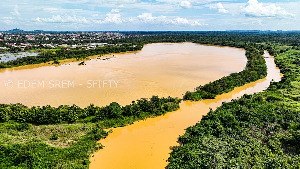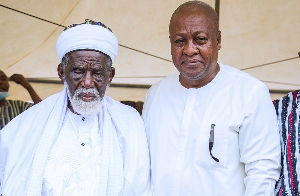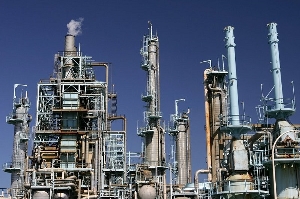Ghanaians have for some years been up in arms, calling on successive governments to address the menace of illegal mining (galamsey). The clergy, Islamic leaders, the media. Legal and medical practitioners and civil society organisations have all spoken with one voice, however, the situation seem to be getting worse and worse, despite the obvious and inevitable dangers it poses to our health, environment and our water bodies.
There is no doubt that, historically, the mining sector has been one of the major economic activities that contribute to national growth. Many countries have grown their economic stature by extrapolating natural resources through mining. Unfortunately, in this country, the economic boom is only enjoyed by some few individuals and influential personalities who do not pay attention to the health implications of the mining activities to the general population.
As a country, we are one of the leading mineral producers in this continent, this is supposed to be a blessing, but it has turned out to be a curse, due to poor leadership, greed and selfishness. While large-scale mining companies obtain permits to extract the minerals, smaller groups and individuals also engage in small-scale artisanal mining, the greedy people in position of trust have taken advantage of the latter giving opportunities to their families and cronies. They have registered numerous small scale mining companies. Most of these entities do not possess the requisite permits to operate, which makes the artisanal mining activities illegal. They do not appreciate impact of their activities on the environment and water bodies, which clearly puts local community health at risk.
Ample data from sources such as WHO and CDC indicate that contaminated water and inadequate sanitation are linked to the transmission of diseases such as typhoid, cholera, and rotavirus.
Negative impact on health:
Artisanal gold mining, while illegal, has become lucrative in Ghana. However, it devastates the environment, causes deforestation, and pollutes the water, air, and soil through the release of toxic chemicals. Data from CDC Emergency Preparedness and Response indicate that chemicals such as mercury and cyanide pollute water, air, and soil through natural processes and industrial activities, thereby posing potentially deadly threat to humans. Pollution of water bodies caused by illegal mining puts community health at risk. When water is contaminated with toxic chemicals, people are driven to find alternative water sources. Many of these sources are often contaminated with bacterial pathogens such as typhoid.
Similarly, heavy metal contamination in some water sources has caused water treatment plants to shut down. When these treatment plants shut down, a community can suddenly be without an improved source of safe water. This can force people to turn to unimproved water sources that increase the risk of typhoid and other waterborne pathogens. Data from the 2020 Ghana Rapid Health Situation Assessment Report indicate high prevalence of typhoid, among other diseases, in mining communities.
Contaminated water and risk of illness:
According to the Water Resources Commission (WRC) “About 60 per cent of Ghana’s water bodies are polluted, with many in critical condition, the Water Resources Commission (WRC).
As a result, some communities can only access contaminated water and this has caused an increase in skin infections and waterborne diseases. For example, in the Shama District, located in the Western region of Ghana and made up of six communities where there is increased illegal mining, diarrheal cases increased from 5,000 to 10,000 in three years. It is likely that typhoid bacteria are similarly found in the unsafe water and that typhoid burden may also be increasing. The difficulties with typhoid diagnosis mean that people may fall ill but not receive an accurate diagnosis or treatment. The communities with increased mining often lack a health centre that can appropriately diagnose and treat individuals when they get sick. This is especially dangerous for a disease such as typhoid that can quickly escalate and require primary healthcare services.
Admittedly, there is extensive poverty and a lack of alternative income-earning opportunities which motivates people to engage in illegal artisanal mining. Families are often torn between needing the income while simultaneously suffering from the environmental and health consequences of such activities. The families who depend on artisanal mining are those most likely to fall ill and least likely to access high quality health care. The greedy politicians do not care because they have access to quality healthcare.
While mining exacts a toll on the local community, the economic benefits mean that it is unlikely to end soon. It is important to keep families and communities safe as they are increasingly exposed to unsafe drinking water. Typhoid conjugate vaccines (TCV) are an affordable solution that can help to protect people from typhoid. The risks of illegal mining are numerous; TCV offers a proven solution to mitigate one health factor to protect families and communities from a potentially deadly infections disease.
Those in power today are clearly aware of this but unwilling to address the menace because of greed and the fear of losing votes.
Opinions of Thursday, 10 October 2024
Columnist: Awudu Razak Jehoney















